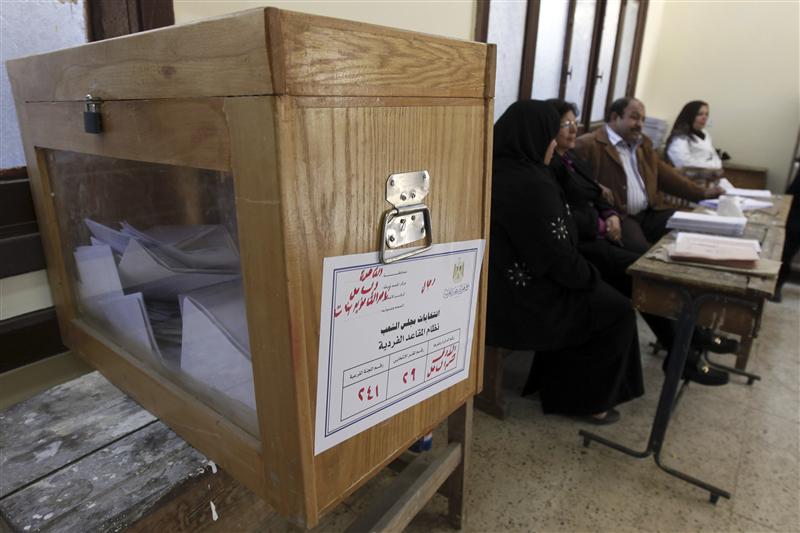Latest NEWS
- Aswat Masriya, the last word
- Roundup of Egypt's press headlines on March 15, 2017
- Roundup of Egypt's press headlines on March 14, 2017
- Former Egyptian President Hosni Mubarak to be released: lawyer
- Roundup of Egypt's press headlines on March 13, 2017
- Egypt's capital set to grow by half a million in 2017
- Egypt's wheat reserves to double with start of harvest -supply min
- Roundup of Egypt's press headlines on March 12, 2017
Overall turnout rate of parliamentary elections 28.3 pct – SEC

A polling station in Shobra, Qaliubiya - Mohamed Abdel Ghani/REUTERS
CAIRO, Dec.4 (Aswat Masriya) - The Supreme Electoral Commission (SEC) announced Friday the average turnout rate of voters in first and second phase of elections to be approximately 28.3 percent, a total 15,206,010 voters out of 53,786,762 eligible voters.
The head of the commission, Ayman Abbas told a press conference that the highest participation rate, in both phases, was in South Sinai province where it reached 41.6 percent. He said Suez had the lowest participation with a turnout of 18.1 percent.
The parliament is comprised of 596 members, 448 are individuals, 120 are for the lists system and 28 are appointed by the president.
Of the 568 elected seats, a total of 555 candidates were elected over the two phases.
However, candidates are sill racing to fill up 13 seats in four first phase constituencies where the elections were postponed as per court rulings.
The "For the Love of Egypt" coalition swept all 120 seats allocated to the lists system in the legislature. The coalition is the brainchild of former military intelligence general Sameh Seif Elyazal, who openly seeks to limit the powers of parliament.
Voters headed to the polls in the run-offs round of the second phase from Nov. 30 – Dec .2, inside Egypt and abroad.
Abbas said that the overall turnout of the second phase run-offs is approximately 22.3 percent, after 6,253,987 voters headed to the polls out of 28,014,404 eligible voters. He added the number of valid votes are 6,056,198 votes, at around 96.8 percent of all votes.
The parliamentary elections are the third and final pillar of the roadmap announced by then-Defense Minister Abdel Fattah al-Sisi in July 2013 following the ouster of former president Mohamed Mursi, after mass protests against his rule.
It’s the first parliament elected since 2012, when Egypt's top court dissolved the Islamist-dominated chamber.
During the absence of a parliament, the president had the legislative power on condition that upon the election of a new parliament all the legislations passed should be discussed and approved within 15 days of the commencement of the new parliament, according to article 156 of the constitution.










